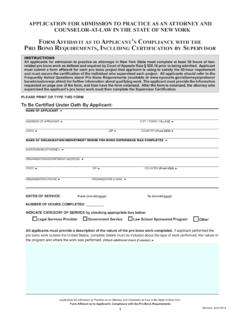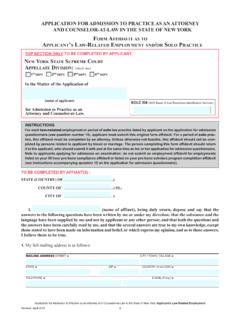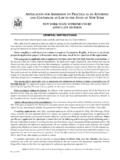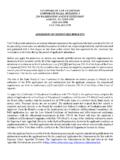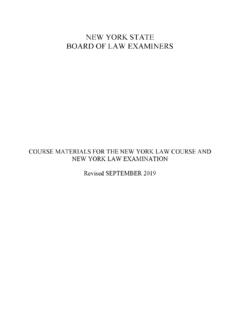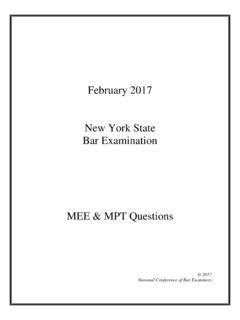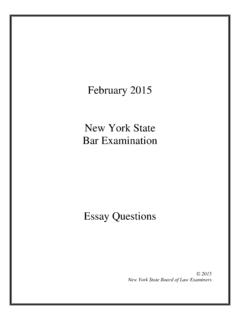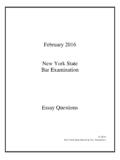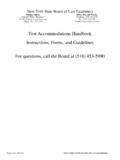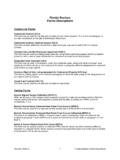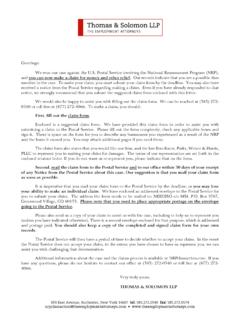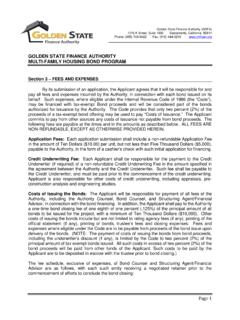Transcription of JULY 2005 QUESTIONS AND ANSWERS ESSAY …
1 JULY 2005 NEW YORK STATE BAR EXAMINATION QUESTIONS AND ANSWERS ESSAY QUESTIONS question 1 In April 2004, Main Corp., a New York corporation engaged in the manufacturing of shoes, formed a subsidiary corporation, Sub Corp. and transferred to Sub Corp. title to Blackacre, in exchange for a $1,000,000 purchase money mortgage. Blackacre, a commercial building located in Westchester County, was occupied solely by Main Corp. Tom and Jerry were the officers, directors and sole shareholders of both Main Corp. and Sub Corp. The corporations maintained separate business records and bank accounts. Sub Corp. had no employees, held no board meetings, and had no letterhead. In June 2004, Main Corp.
2 Vacated Blackacre, and Sub Corp. entered into a written contract with Amy, a duly licensed real estate broker, to sell Blackacre. The contract set forth in pertinent part that if Amy procured a purchaser for Blackacre, Amy would be entitled to a 6% commission upon closing of title, but that if Sub Corp. found a purchaser on its own, no commission would be due to Amy. On the day the brokerage contract was signed, Tom orally agreed with Amy that even if Sub Corp. found a purchaser for Blackacre, Amy would be entitled to a 2% commission on the sale. Over the summer, Amy spent at least 100 hours trying to procure a purchaser for Blackacre, but was unable to do so. In October 2004, Amy advised Tom that she had found a buyer ready, willing and able to buy Blackacre for $1,000,000.
3 However, Tom told her that he had already found a buyer, to whom Sub Corp. had sold Blackacre. When Amy demanded that Sub Corp. pay her the 2% commission, Tom refused. Amy hired Lawyer to sue both Sub Corp. and Main Corp. to recover her commission. The written and signed retainer agreement between Amy and Lawyer set forth in pertinent part that Lawyer would receive a nonrefundable retainer of $10,000 against a rate of $200 per hour. Lawyer duly commenced an action against Sub Corp. and Main Corp. asserting causes of action against both defendants for breach of contract, or in the alternative, for recovery under the theory of quantum meruit. In her complaint, Amy claimed, among other things, that (1) Main Corp.
4 Dominated Sub Corp. to such an extent that Main Corp. was the "alter ego" of Sub Corp. and was therefore liable under the contract as if it were a signatory, and that (2) the oral agreement between Tom and Amy was binding on both Sub Corp. and Main Corp. Amy became dissatisfied with Lawyer's representation, discharged Lawyer and demanded the return of her $10,000 retainer. Lawyer refused on the ground that pursuant to the express terms of the agreement, the retainer was "nonrefundable." At the time of Lawyer's discharge, Lawyer had provided ten hours of legal services on Amy's behalf. (1) Can Amy's contract with Sub Corp. be enforced against Main (2) Can Amy recover against Sub Corp.
5 (a) for breach of contract and/or (b) in quantum meruit? (3) What are the ethical and monetary consequences of Lawyer's refusal to return the $10,000 retainer? --- question 2 Joe approached Pat, an undercover police officer, and asked if Pat had one pound of marijuana for sale. Pat replied that he could provide him with one pound of marijuana at a price of $1,500, and they made arrangements to consummate the sale. At the appointed time and place Joe paid $1,500 to Pat, who delivered one pound of oregano to Joe. Pat then arrested Joe and charged him with criminal solicitation and attempted possession of marijuana. Pat took Joe to the police station where he gave Joe his Miranda warnings.
6 Joe refused to make any statements, asserting his right to counsel, and immediately called his lawyer, Ann. At Joe's trial the sole witness produced by the prosecutor was Pat, who testified to the foregoing facts. After the jury returned a guilty verdict on both charges, Ann moved to set aside the verdict (1) as to the solicitation charge, on the grounds (a) that the facts presented could not support a guilty verdict, and (b) that corroboration of Pat's testimony was required because Pat was an accomplice in the underlying crime, and (2) as to the attempt charge, on the ground that the proof was that Joe obtained only oregano. While awaiting trial on the foregoing charges, Joe entered Linda's liquor store near closing time and hid while Linda closed the store and locked the front door.
7 Thinking Linda had left the store, Joe removed some bottles from the shelves and placed them in a carton. When Linda suddenly appeared, Joe fled the building empty- handed. Shortly thereafter, based on a description that Linda gave to the police, Joe was arrested. The arresting officer, Cal, was aware that Joe was represented by Ann on the pending criminal solicitation and attempted possession charges. After Cal gave Joe his Miranda warnings, Joe said that he did not want to consult Ann because no one was hurt and nothing was stolen, so he should not be in any trouble. Joe then admitted that he was the person Linda had described as being in the liquor store and that he had moved some bottles from a shelf to a carton.
8 After a grand jury indicted Joe for the crime of burglary based on the foregoing facts, Joe asked Ann to represent him on the burglary charge. Ann has moved (3) to suppress Joe's admissions on the ground that he could not waive his right to counsel without Ann being present, and (4) to dismiss the indictment on the ground that the facts alleged do not support the crime. How should the court rule on the motions numbered (1) through (4)? --- question 3 Tom and Beth, both age 30, were married in New York in 1996. At the time of their wedding, Tom was a successful business executive, and Beth was a first year law student with no assets, living off the proceeds of a student loan. Before they were married, Tom and Beth consulted separate attorneys and agreed, in a duly executed and acknowledged pre-nuptial agreement, that in the event they were to divorce, neither party would seek equitable distribution from the other.
9 The agreement contained no provision with regard to maintenance in the event of their separation or divorce. Immediately after they were married, Tom persuaded Beth to quit law school so that they could travel together in his business and she could assist him in hosting business dinners and other events. Tom and Beth lived a lavish lifestyle over the next several years, traveling extensively and maintaining two elegant homes in New York, both owned by Tom. Tom gave Beth access to a substantially funded checking account to pay for household expenses for their homes and for her personal use. Beth managed the homes and assisted Tom s career by overseeing the social obligations of his business and community affairs.
10 Tom and Beth lived together in New York until January 2002, when Tom abandoned Beth, sold his New York homes, and moved to State X, where he established his domicile and has since resided. Beth has continuously resided in New York. In March 2004, Tom commenced an action for divorce in State X upon the ground of irreconcilable differences, a ground recognized in State X. No economic relief was sought in the action. Beth was personally served with the summons and complaint in New York, but did not appear in the State X action. In July 2004, the State X court granted Tom a divorce from Beth, valid under State X law, and made no findings with respect to their economic affairs. Although his business has continued to flourish and he has amassed considerable wealth, Tom provided no support to Beth after he abandoned her.
